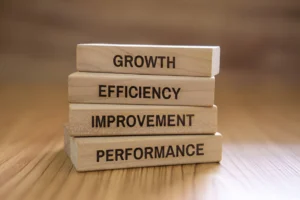
Every company struggles with growth, from a massive conglomerate to a budding startup. For small businesses, however, the struggle is fiercer. This is because to stay competitive, they’re compelled to do more with less, and this includes handling the HR side of things efficiently.
Growing businesses need to attract and retain top talent; they need to manage employees’ performance effectively, stay compliant with regulations, and keep their workplaces safe. These and more are the fundamental challenges that small and medium-sized businesses face in addition to accurately executing their revenue-generating strategies and generating much-needed profits. So, it’s needless to say that leaders of SMEs have a lot on their plates.
The good news is that ready-to-use infrastructures are in place to enable SMEs to stay on top of their HR deliverables and come out ahead of the pack.
By choosing to outsource even a small part of their HR administrative responsibilities, organisations can afford the freedom they need to focus on the core activities that’ll grow their business.
Outsourcing HR
There are so many possibilities available to you when it comes to outsourcing HR functions. For example, depending on your needs, you may outsource your basic payroll processing, regulatory compliance, or employee benefits administration. However, if your need is comprehensive and you want something more robust and holistic, then a professional employer organisation (PEO) is what you’d need to leverage.
What a PEO can do for you
Good PEOs differ from other HR outsourcing companies because they provide the bulk of your business HR needs against one or two specific services. With a PEO in your corner, it’s safe to say that your HR needs are more than halfway met. Again, depending on what your business needs, a good PEO will provide the following benefits for your organisation:
- Access to comprehensive and cost-effective benefits for your employees. This includes health care coverage that caters for medical, dental and vision issues.
- Best rates for your employees’ social insurance coverage. This includes life insurance cover and short-term and long-term disability insurance. PEOs also offer claim resolution assistance.
- Highly specialized HR professionals in recruitment, employee retention and performance management.
- Accurate and timely administration of payroll in accordance with federal and state laws. This also includes prompt tax reporting.
- Robust employer liability management that reduces employment-related risk. Because PEOs have a vested interest in keeping your business compliant with HR-related laws, they’ll assist you with important tasks like:
- Crafting comprehensive employee handbooks
- Handling workers’ compensation claims support
- Interfacing with certain agencies on your behalf
- Relief from administrative duties that steal time from more revenue-generating duties
How do PEOs work?
Professional employer organisations operate through a relationship called co-employment. In simple terms, it means that your employees work for both your company and the PEO.
In this relationship, you are the operating employer, and you maintain absolute control of business decisions and operations. The PEO, on the other hand, is called the administrative employer, and they manage most of the time-consuming HR administrative tasks that are required to run your business.
3 Common Misconceptions about PEOs
Though the PEO industry is over three decades old, there are still a handful of misconceptions about how it operates. Three of the most common ones are:
Loss of control and authority
The title co-employer can be easily misunderstood to mean that PEOs reduce employers’ control over their people. This is far from the truth. The only responsibility that a PEO undertakes is to provide your company with highly experienced HR professionals who will provide guidance and trustworthy human resources management advice to enable your organisation to achieve its goals. In addition, you maintain strict control of all business and operational decisions.
Employee resistance
PEOs do not in any way disrupt the operations of your organisation or saddle your employees with any extra burdens. In reality, the only significant difference your employees might notice is that the PEO and not your company pay them. They’ll also come to appreciate the robust employee benefits that PEOs bring to the table.
The existing HR department will be rendered redundant
This is the greatest concern that most HR professionals have. However, even though a PEO will be taking on a significant part of the administrative HR duties of your company, the intention is to free-up time for your existing HR team to focus on weightier matters such as culture management, etc. In addition to enabling focus, the best PEOs also prove to be an invaluable source of support when your in-house team is faced with high-risk HR situations.
Finding the Right PEO Partner

It’s important to understand that PEOs differ from each other. Naturally, some PEOs are more advanced—in terms of specialized support and quality resources— than others.
So, if you’ve decided to work with a PEO, there are ten crucial questions to ask before making your final selection:
1. What is the financial strength of the PEO?
It is essential to verify the PEO’s financial statements and be sure to work with statements that a certified public accountant has independently audited.
2. Is the PEO certified?
Reputable PEOs meet the highest standards by subjecting themselves to the scrutiny of governing institutions. Therefore, begin your research by making sure the company is accredited, licensed or registered as appropriate and in good standing with global and national organisations.
3. Are the benefit plan options of the PEO robust?
Good PEOs differentiate themselves by the quality of benefits options they make available to their clients. For example, at Workforce we provide your employees with access to a range of benefit packages from a variety of well-known national and international insurance carriers.
4. Are the technology and resources provided of the highest quality?
A good PEO stays abreast of HR technology so as to provide only the best the market can offer to their clients. Again, part of Workforce’s outsourcing package for client organisations includes HR techs to cater for learning and development, performance management, human resource information system (HRIS) and payroll efficiency.
5. May we have access to client and professional references?
It is vital to know what the past and present customers say about the PEO you’ll be partnering with. Therefore, take the time to get referrals from other businesses that have worked with the PEO.
6. How high is their commitment to customer service?
You don’t want to find out when it’s too late that your PEO’s response time is abysmally low or that there is an extra charge to speak with customer service reps. Therefore, it is prudent to enquire and establish under the contract that you’ll have access to a dedicated service team at all times.
7. What is the service and fee structure?
Though several variables determine the fee charged by a PEO, you should take the time to understand and agree with how the PEO structures its billing.
8. What is the PEO’s level of administrative expertise and competence?
How competent and experienced are the internal HR staff of the PEO?
9. What is the PEO’s staff support ratio?
Taking the time to establish this detail will help you compare the level of service that one PEO offers with another.
10. Is there a detailed contract and SLA in place?
It would help to establish that the respective parties’ responsibilities and liabilities are laid out. Understand the provisions that permit you or the PEO to terminate the contract. And also, seek to know what business coverage you’ll be gaining.
In conclusion
SMEs have a lot to benefit from partnering with a PEO. To be more specific, according to research conducted by the National Association of Professional Employer Organisations, organisations that work with a PEO grow 7-9% faster, have 10-14% lower employee turnover and are 50% less likely to go out of business.
If you need further clarifications or require the help of our senior and experienced consultants please reach out to us at hello@workforcegroup.com.

Nneka Eneli
Director, Workforce Outsourcing

